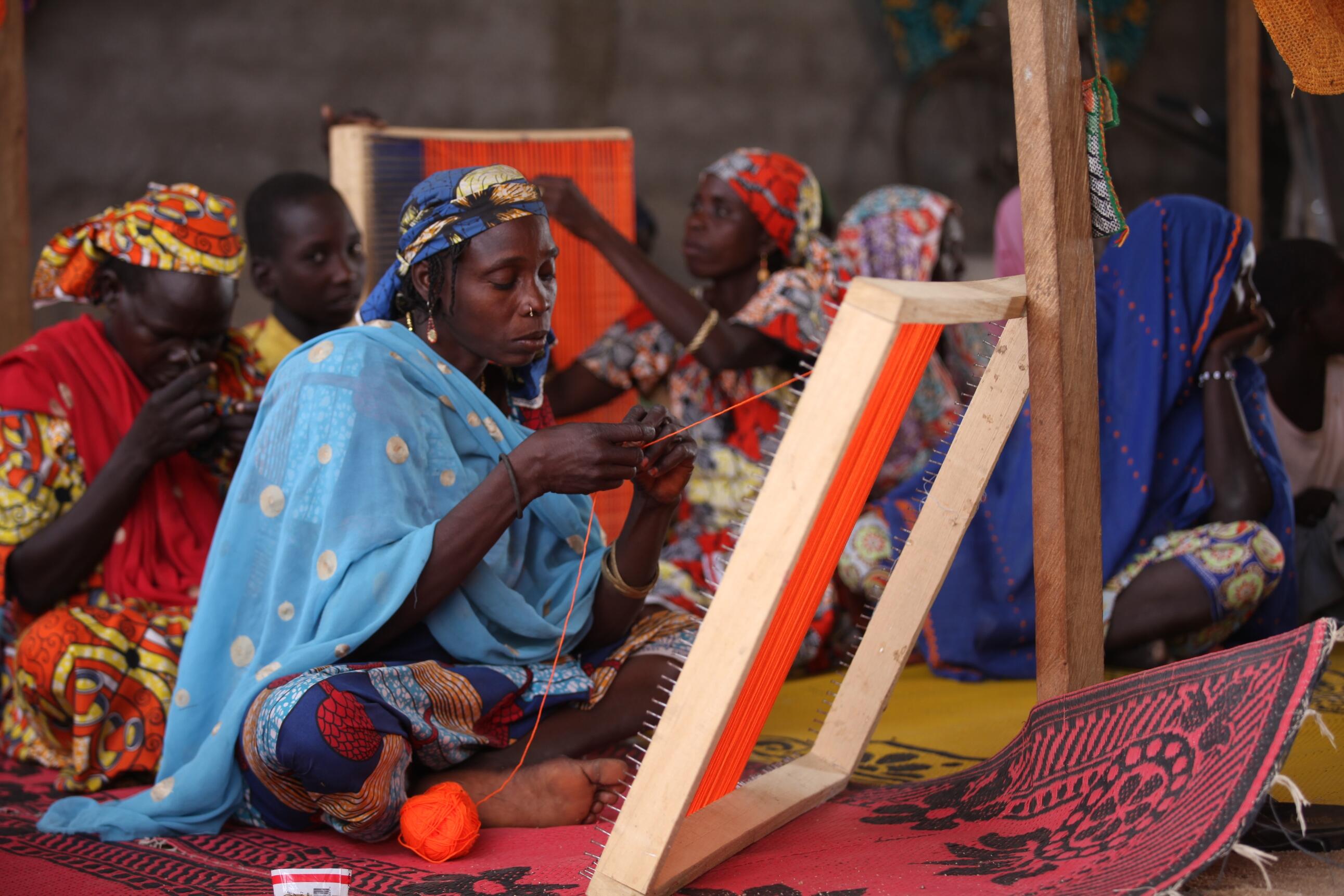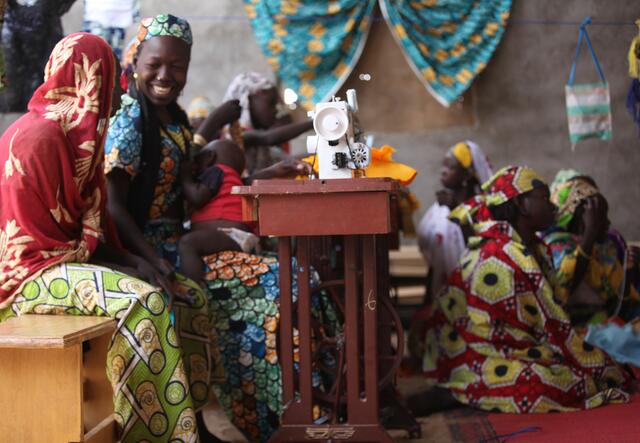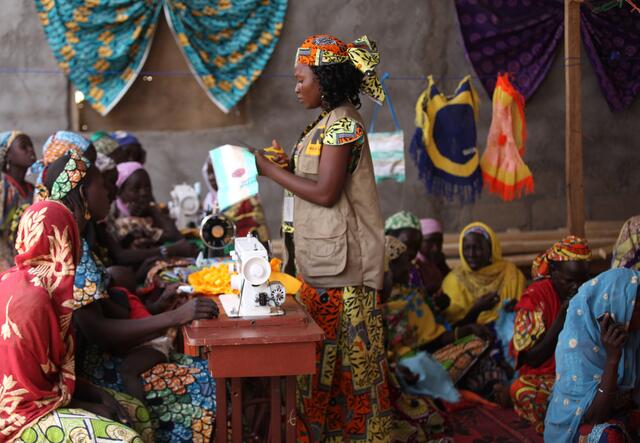
Militant terror organisation Boko Haram has been committing acts of violence in the far north of Cameroon since 2014. This region was the poorest part of Cameroon even before the outbreak of the conflict. It is even harder now for people to get food and millions are in need of life-saving support.

A long way to safety
Before the conflict, Awa lived in Limani, a village in northern Cameroon bordering Nigeria. Boko Haram militants attacked the village in the middle of the night. Awa was forced to watch as the militants cut the throats of her father, husband, and two of her brothers, before abducting her 10-year-old son and setting fire to the village. She fled with her five surviving children, leaving behind her a village in ashes. After covering 40 kilometres on foot, they arrived in Mémé, a village that now hosts a large number of people displaced by the conflict.
Awa and her children now share a small hut made of millet stalks. She says that the trauma from her experiences in Limani caused her to live in constant fear and grief. She fell into a deep depression and withdrew into herself.
More than 1,000 people have been kindnapped in the far north region of Cameroon since 2014 according to the UNHCR. Especially at risk of abduction and sexual slavery are women, many of whom fled their villages with their children when Boko Haram attacked.
Their families lost and their homes destroyed, they have had to travel for days before reaching a place where they can feel safe, but the trauma they experienced takes a toll and the road to recovery is even longer.

A new taste for life
Awa first heard of the IRC’s women’s protection and empowerment services when a community volunteer visited her at home and told her about how the IRC organises group activities and provides confidential spaces for counselling. She went to the nearest Safe Space, a communal space where she can interact with other women and find support in each other. Slowly, over the course of several counselling sessions, Awa began to emerge from her solitude, passing more and more time with the other women who had also come seeking support.
Awa is one of the 181 women who have learned knitting or embroidery at the ECHO-supported Safe Spaces in Mémé and Mora. After finishing her daily household work, she often goes to the Safe Space to knit and talk with the other women, an activity that allows them to provide each other with mutual support. She says that she has begun to psychologically recover and, despite the difficulties of her situation, to re-discover a taste for life.
With financial support from the European Union Civil Protection and Humanitarian Aid (ECHO), the IRC has been offering these vital Safe Spaces since October 2016 in Cameroon’s war-torn far north region. With a geographical focus on communities near the Nigerian border that have been devastated by the Boko Haram conflict, the project provides supportive services to survivors of gender-based violence.